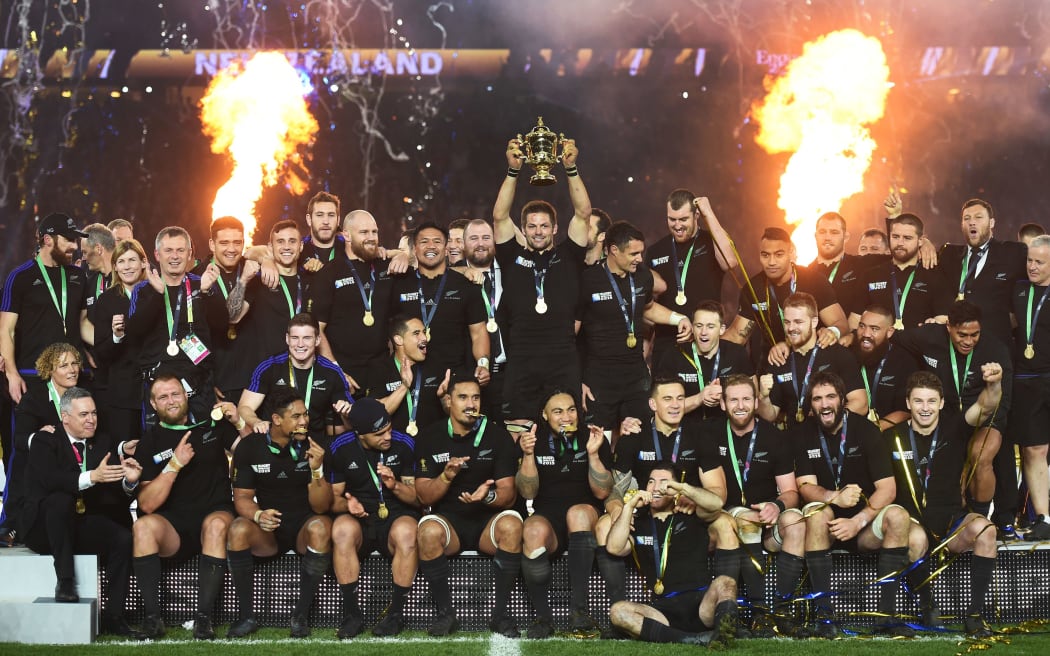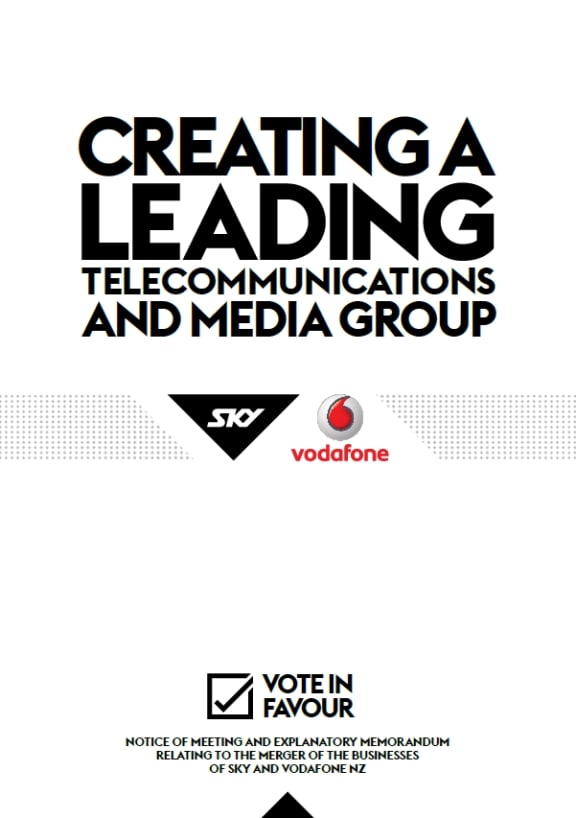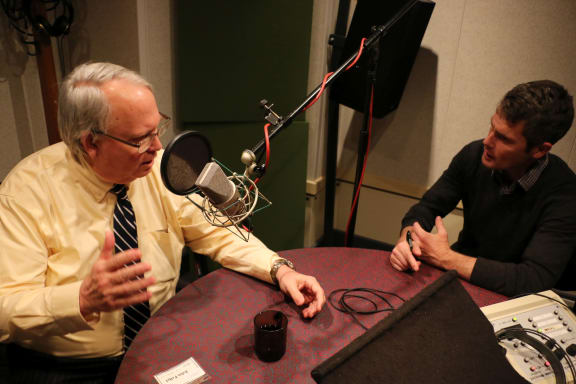Sky TV and Vodafone's plan to be a joint TV, telecoms and technology titan was torpedoed by our competition watchdog this week. What was it that sunk the plan? And was it a good call for consumers?

The All Blacks winning the 2015 Rugby World Cup Photo: Supplied
Soon after merger plans were first announced, Sky TV CEO John Fellett told Mediawatch the merger would not be anti-competitive.
'VodaSky' would not shut other companies out and claims Sky's exclusive live sport would be restricted to Vodafone customers were unfounded, he said.
But it met heavy opposition.
Submissions from other interested parties received by the Commerce Commission were almost unanimously opposed to the merger.
Most were from corporate rivals, who spared little expense on lawyers and consultants to make their case.
Internet NZ, which represents internet users, also came out against it.
"Should we really let one of the big kids in the ISP (internet service provider) territory to get into bed with the only big kid in the PayTV space?" asked Internet NZ.
"The assurances made by Sky and Vodafone aren’t enough to minimise the risks . . . of reduced competition for both content and telecommunications, and risks of unfair treatment of content for anti-competitive ends," said Internet NZ.
The case against
Last October, the Commerce Commission sent a Letter of Unresolved Issues to Vodafone and SKY. Unusually, it was released publicly.
The letter said the Commission was not satisfied the merger would not "substantially lessen competition".

The cover of the Sky's document urging investors to vote for a merger with Vodafone. Photo: screenshot
A merged company would have substantial market power over premium content like rugby, it said, and it could bundle pay TV and telecom services to make them more attractive to consumers than those of any competitor.
Sky and Vodafone were clearly unable to change the commissioners' minds.
“The proposed merger would have created a strong vertically integrated pay-TV and full service telecommunications provider in New Zealand owning all premium sports content," said Commerce Commission chair Dr. Mark Berry in today's statement declining the merger.
"Sky Sport has all the important content that is the glue to which New Zealanders are attached -- rugby, cricket and so on," Dr Berry told reporters on Monday. Without it, the merger would probably have been approved, he said.
"I don't see how they could have done anything else," said Juha Saarinen, a journalist who has covered telecoms and broadcasting for nearly 20 years.
"It's not as if we have much competition anyway. If you have one player in both business with the premium content, that;s not good for consumers," he told Mediawatch.
700,000 households can't be wrong?

Jordan Carter, Internet NZ Photo: supplied
In a fragmented media marketplace, Sky TV offers a one-stop-shop for sport, news and entertainment in several packages. More than 700,000 households still pay more than $70 on average for the service and a merger may have allowed Sky to offer consumers a better deal.
"Sky has been formidably successful as a pay-TV broadcaster," said Jordan Carter, chief executive of Internet NZ told Mediawatch.
"There must be value in that content of they can digitise it properly. But that's not what Vodafone is good at. It is a telco offering connectivity. The best outcome for New Zealanders is getting access to Sky content whatever your ISP is," he said.
What next for Sky TV?
Vodafone and Sky will now mull a judicial review of the decision.
Vodafone is still a powerful telco on its own which may pursue other options in pay TV and entertainment, but Sky now faces a harder road.

Sky TV's chief executive John Fellet talking to RNZ's Colin Peacock. Photo: RNZ / Francesca Emms
Last year John Fellett told Mediawatch the company's services were perfect for "the boomer generation" with big screens in the house. But the millennials? Not so much.
He said even his own kids had little interest in it. like other young people, they watch shows on demand on portable devices.
"We've got to find a way of turning them into customers," he said.
The merger - which would see see Sky subsumed by Vodafone - was part of a key part of that strategy.
It still has exclusive live rights to top sports like rugby and cricket sewn up until 2020, and deals with the likes of Disney, Pixar and the BBC.
But ironically, the case for merging that Sky presented to its investors last year also set out the company's medium and long-term problems.
"The proposed transaction is expressly designed to address the deterioration in Sky TV’s strategic position,” said an independent assessment from valuation adviser Grant Samuel.
“Sky TV’s strategic position as a 'pure play' pay television operator is not attractive over the longer term. The rise of internet-based subscription TV services has flattened Sky’s growth and its earnings are bound to fall," it concluded.
One year later that was born out by figures released last Monday: a 32% fall in net profits and more 6,000 subscribers a month walking away in the last half of 2016.

